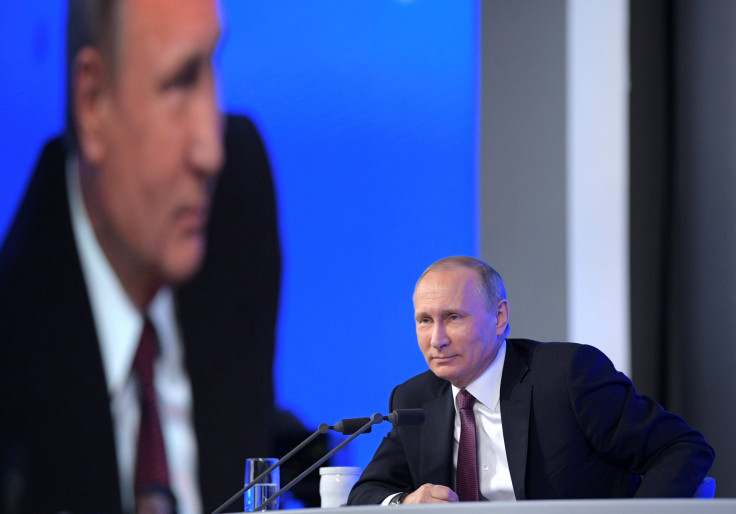Radical Islamic Terrorism: Putin, Trump Disagree On Religion’s Role In Terror?

Throughout his campaign, President-elect Donald Trump often directly associated terrorism with Muslims around the world by saying “radical Islamic terrorism,” a phrase he criticized President Barack Obama for failing to use and denying any link between the religion and terrorist attacks.
However, Russian President Vladimir Putin’s thinking appears to fall well in line with Obama’s and not Trump, who he’s been accused of helping win the 2016 presidential election by directing his government to hack the Republican and Democratic National Committees.
Speaking at his annual year-end press conference Friday, Putin said he would prefer not to link Islam with terrorism, Russian state-run site Sputnik International reported.
"I would prefer Islam not to be mentioned in vain alongside terrorism. You are right here," Putin said when asked if the phrase "Daesh, terrorist organization in Russia" should be banned from use by the media.
Following the assassination of a Russian ambassador in Turkey, allegedly in the name of Syria, the comments may be confusing to some.
But Putin’s comments only strengthen is previous statements on Islam and terror. In May, at an event devoted to discussing Islam and Russia, Putin said Russia will always be a “reliable ally” to the “Islamic World,” Newsweek reported.
“I would like to confirm that in Russia, the Islamic world will always find a reliable ally, prepared to cooperate in resolving pressing problems,” Putin said. “We support the position of Muslim countries to strengthen values such as justice and the rule of law in international relations.”
Putin’s vow and consistent rhetoric fall well in line with his foreign policies and Russia’s attempts to further strengthen its military presence around the world. While helping Syria defeat revels in its five-year long civil war with airstrikes and troops on the ground, Russia has opened a permanent military base in Syria and is toying with the idea of further expansion in Vietnam and Venezuela.
Polls show it's politically beneficial for Putin to keep the current trajectory of his foreign policies. In June 2015, a Pew Research Center study found 90 percent of Russians approved of Putin’s handling of China and 85 percent were in favor of his work with the U.S.
© Copyright IBTimes 2025. All rights reserved.





















